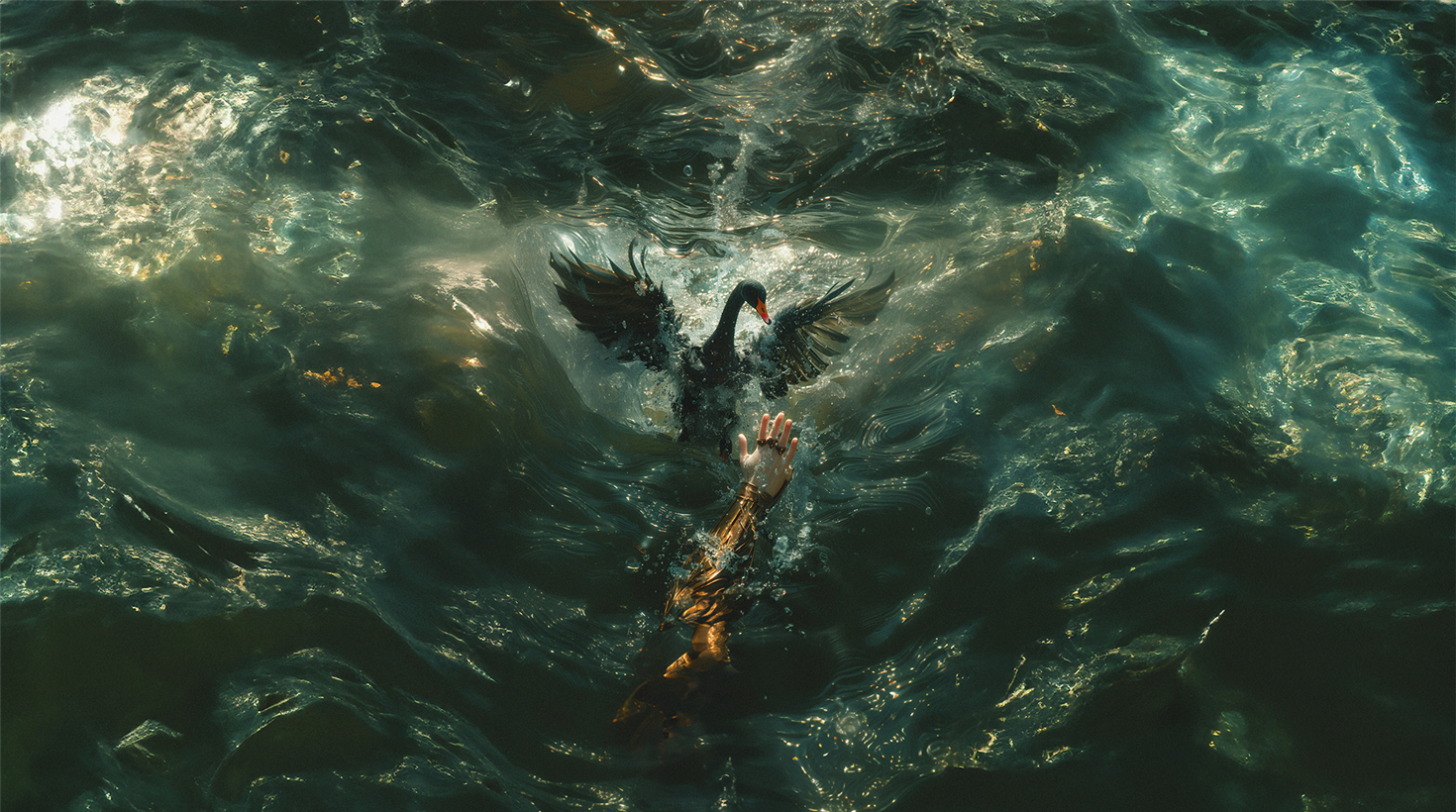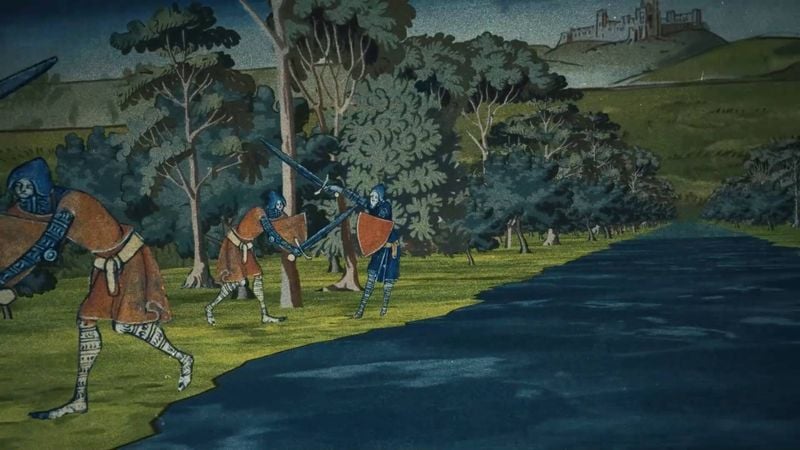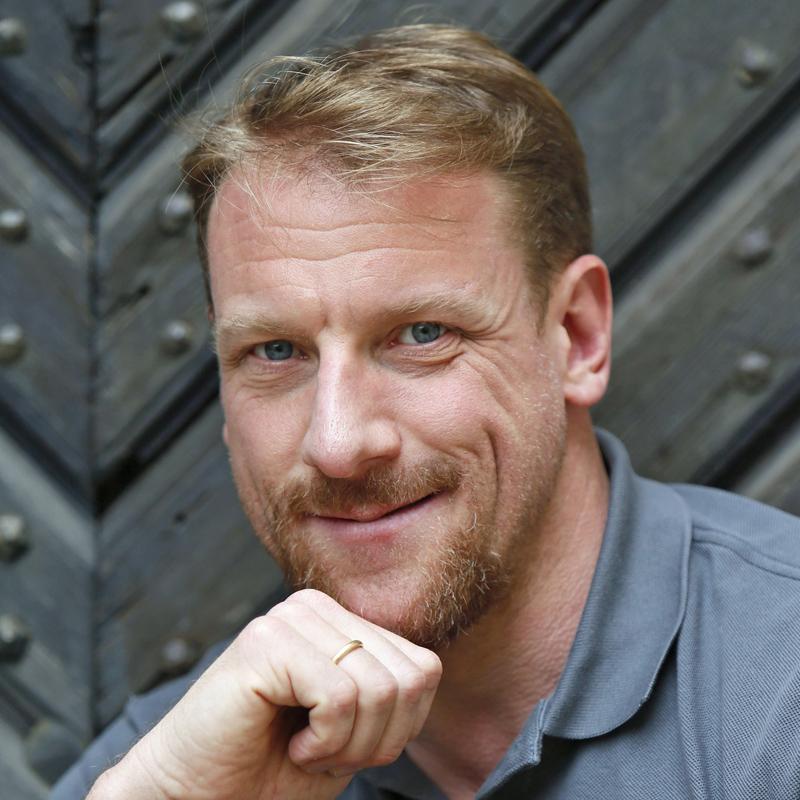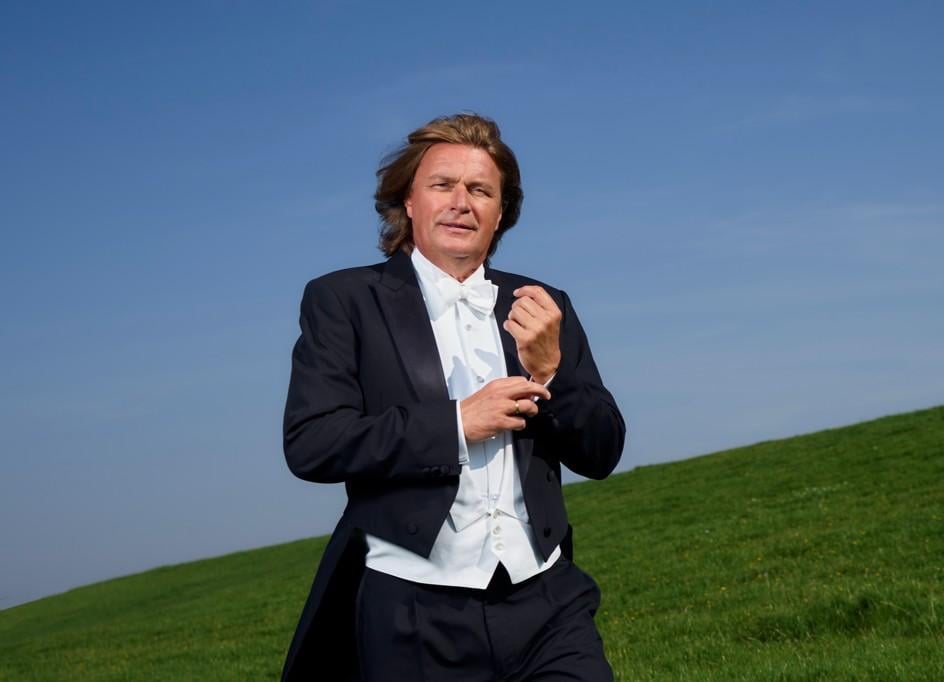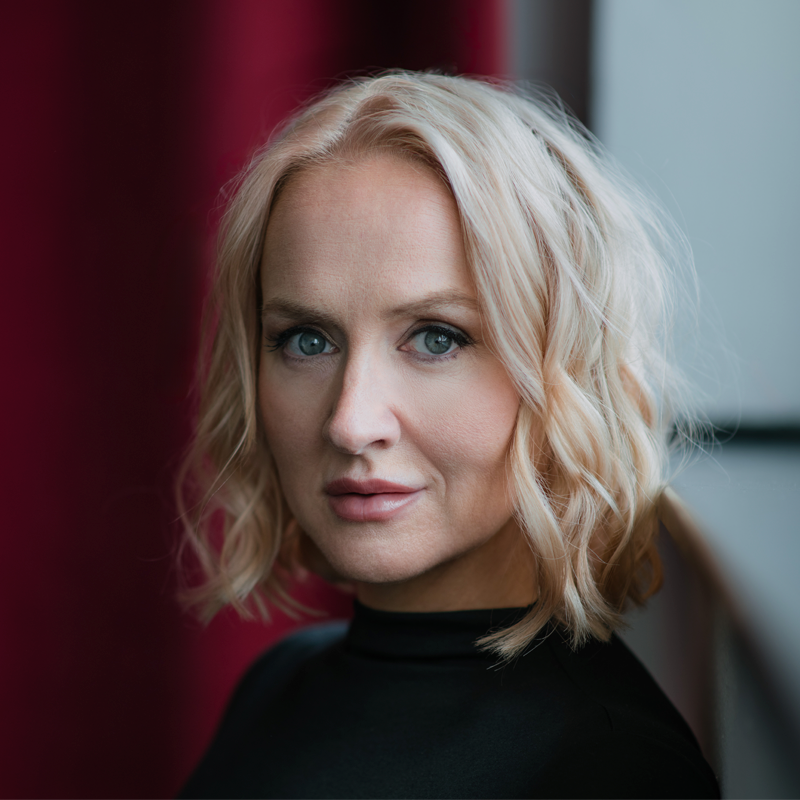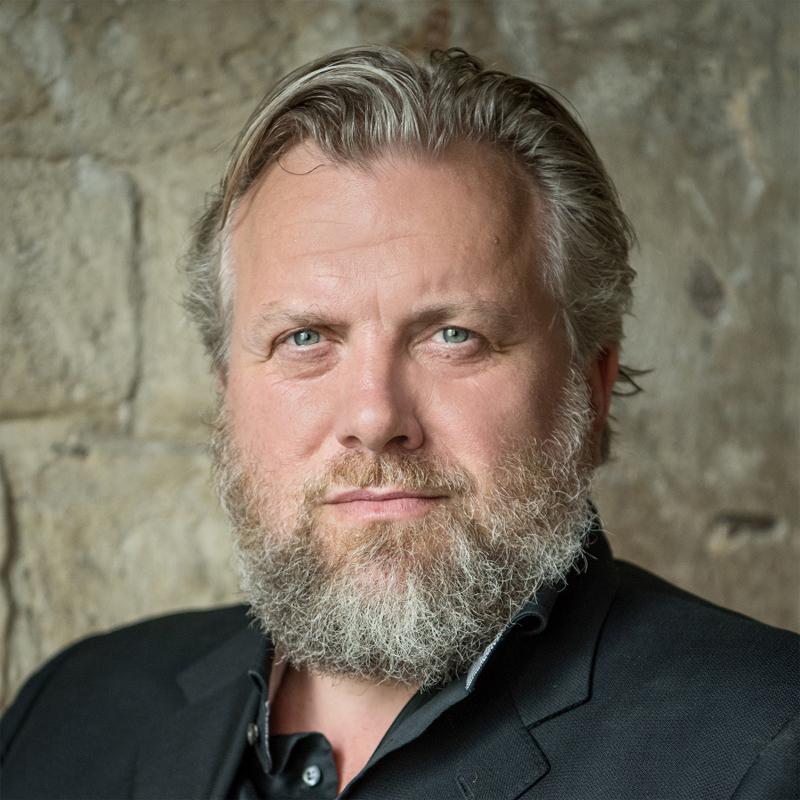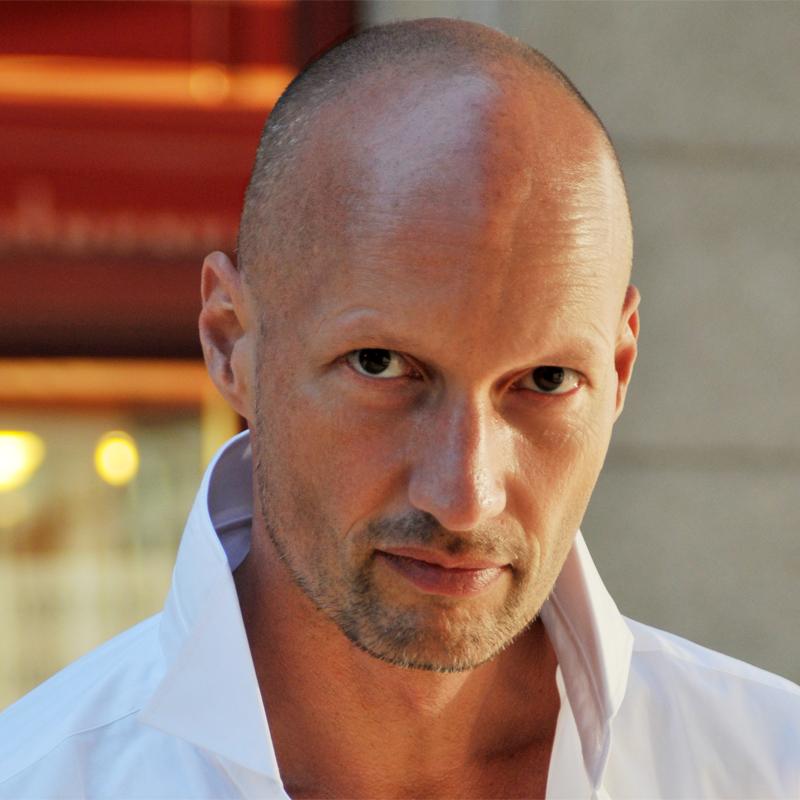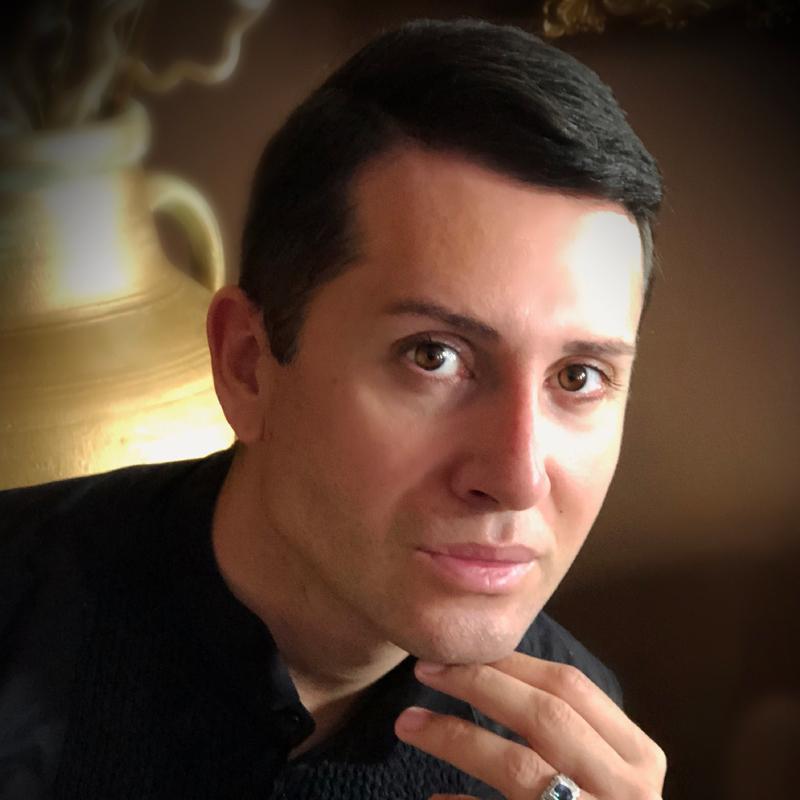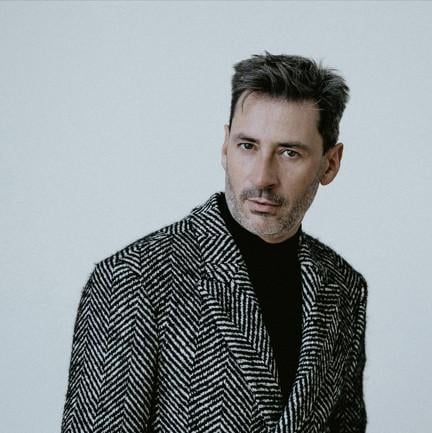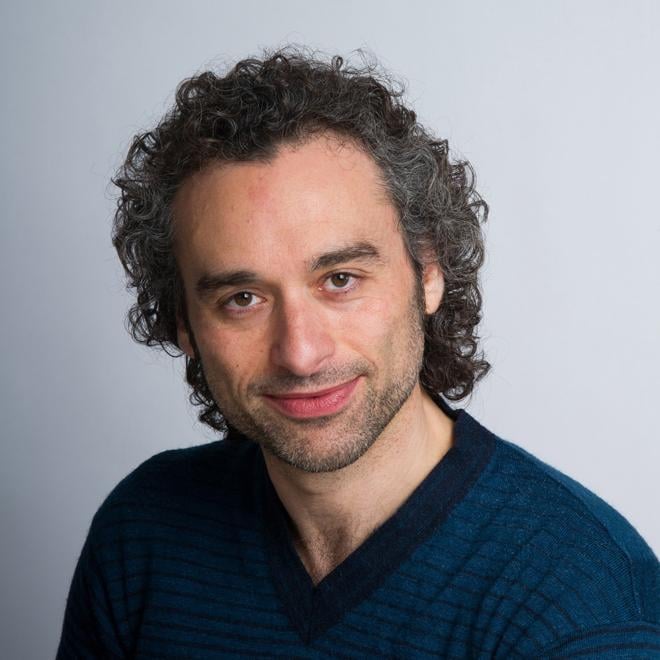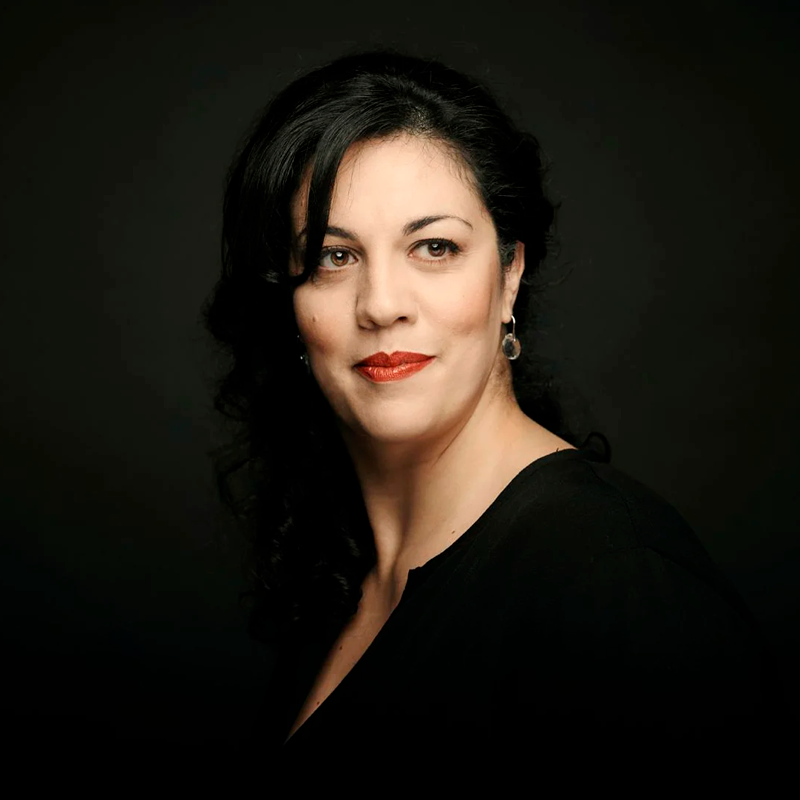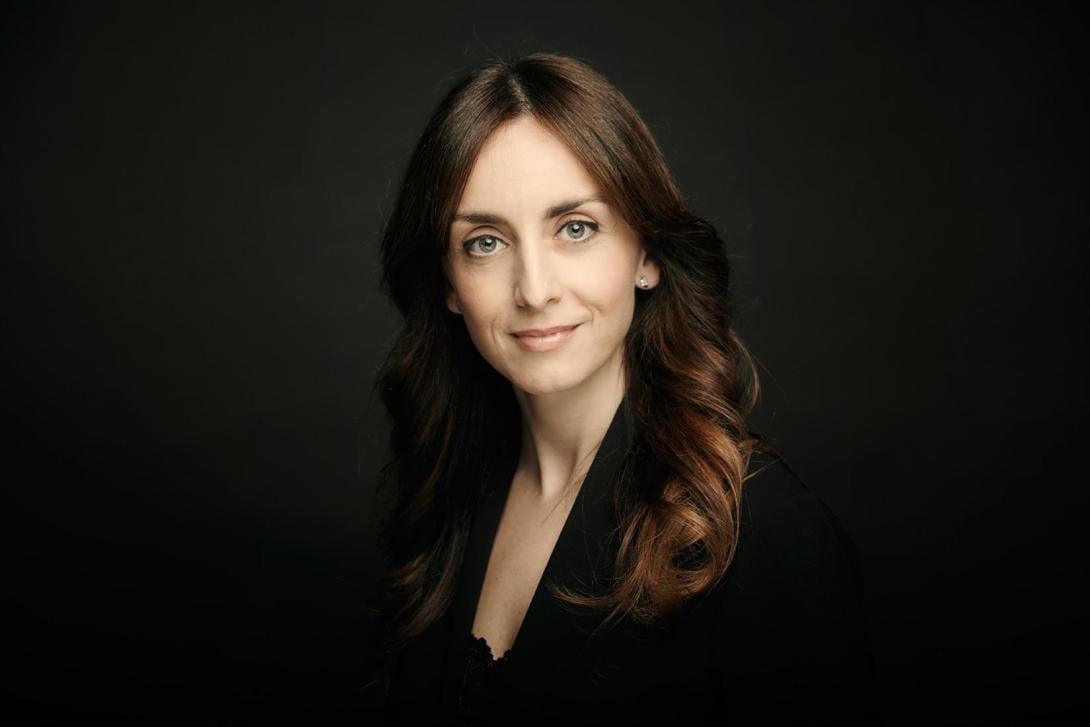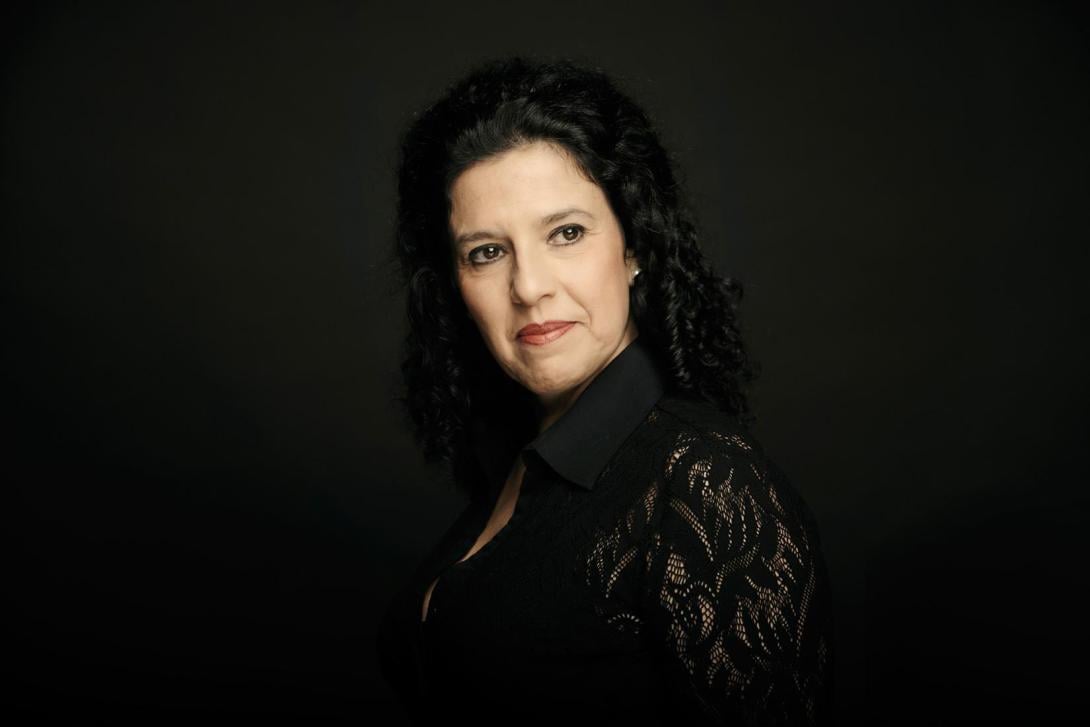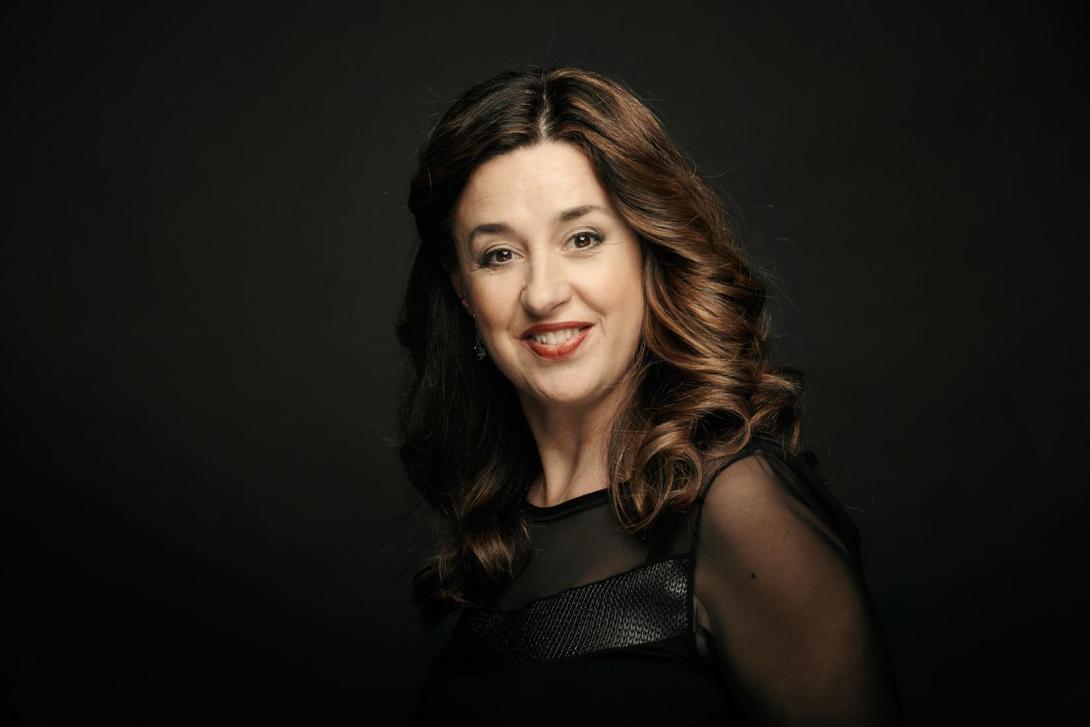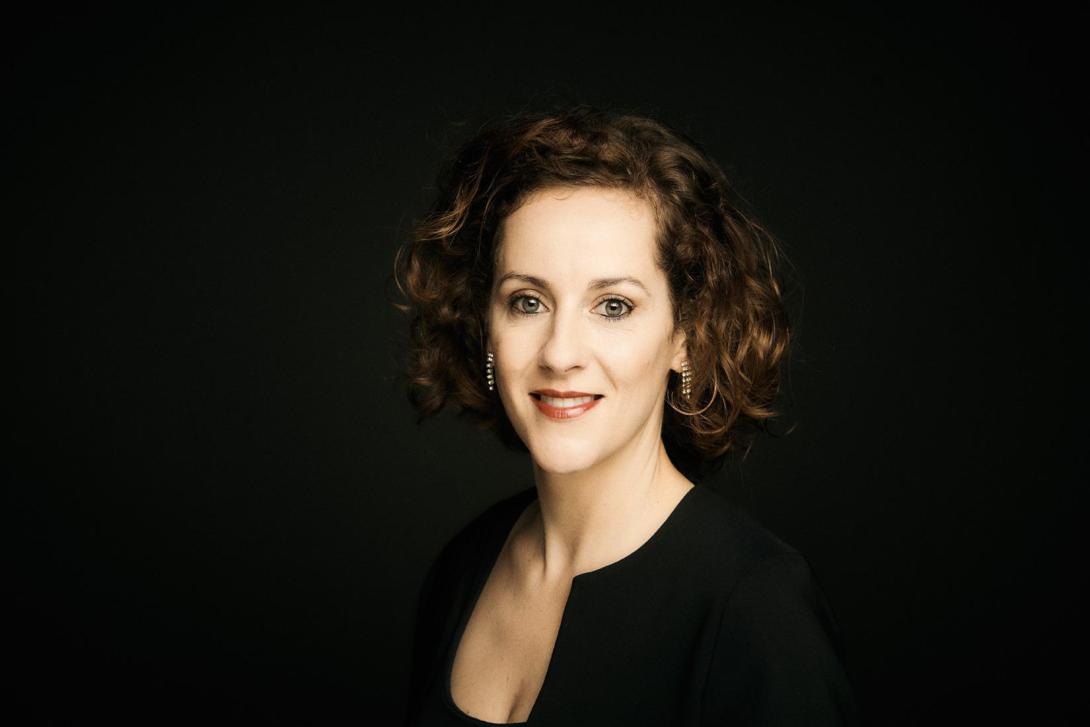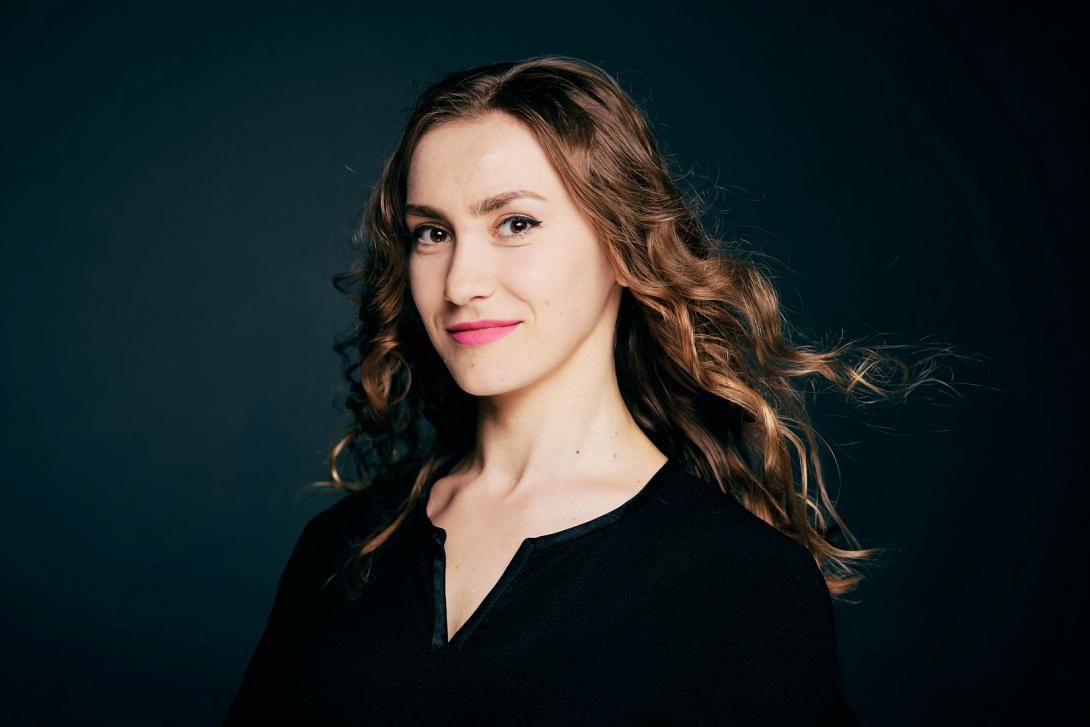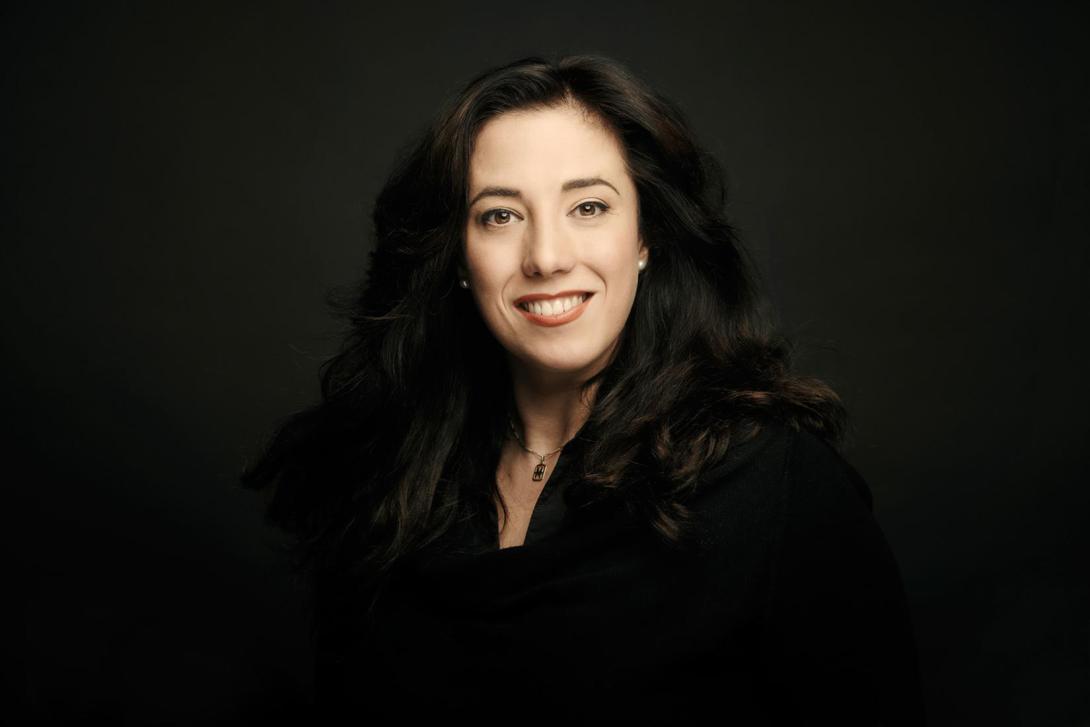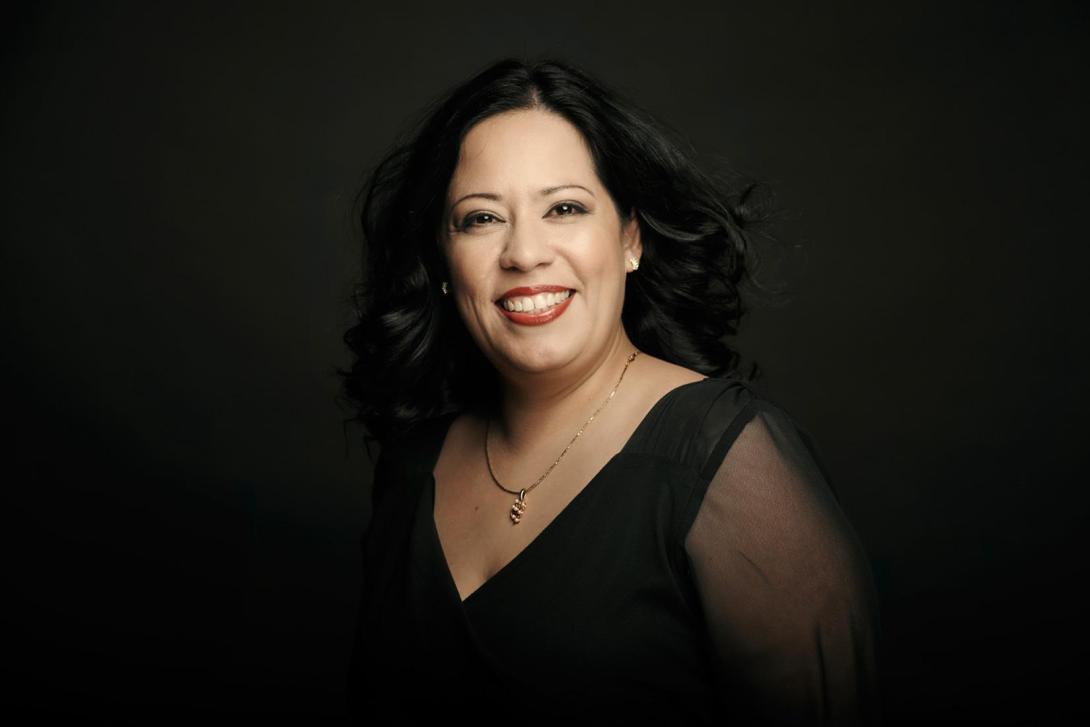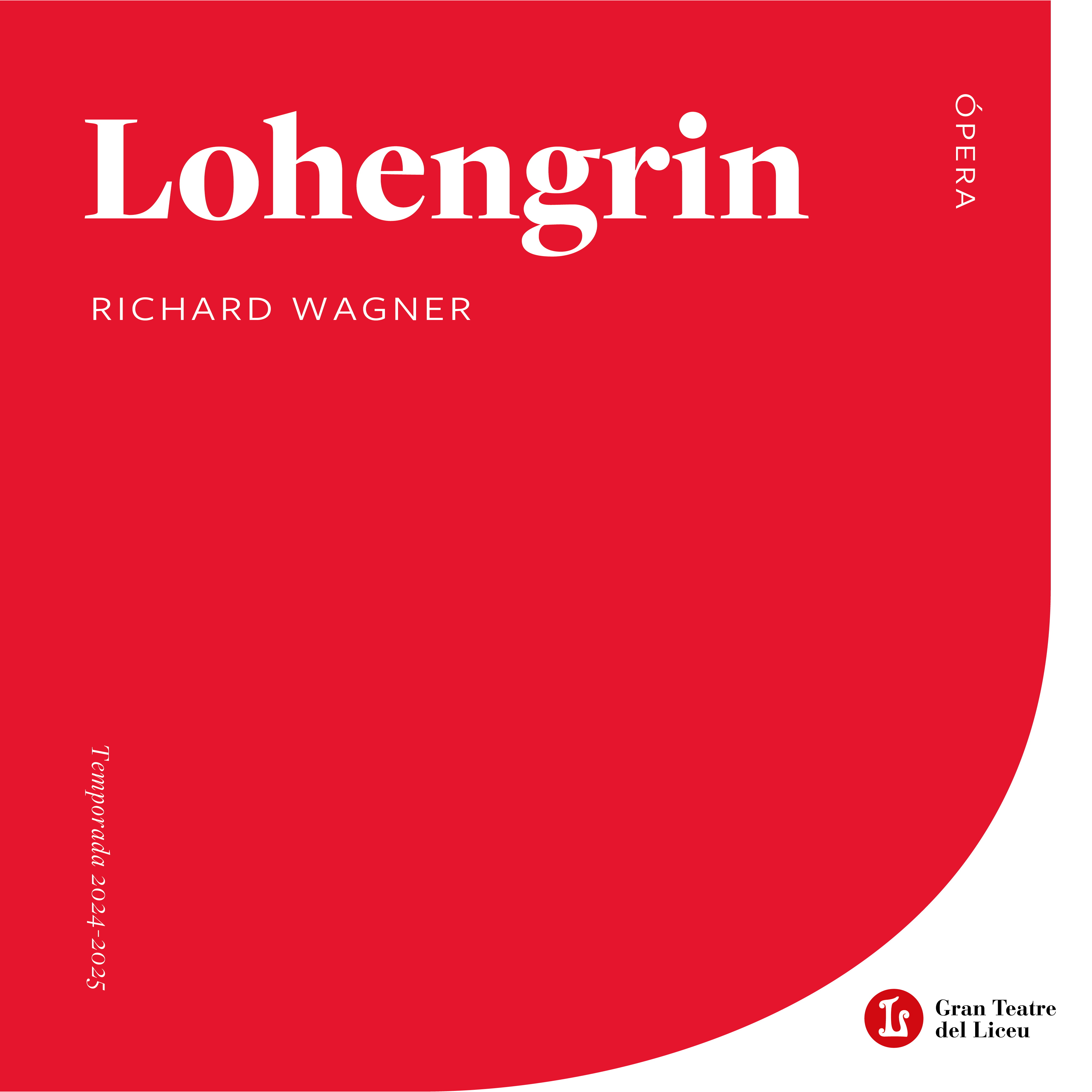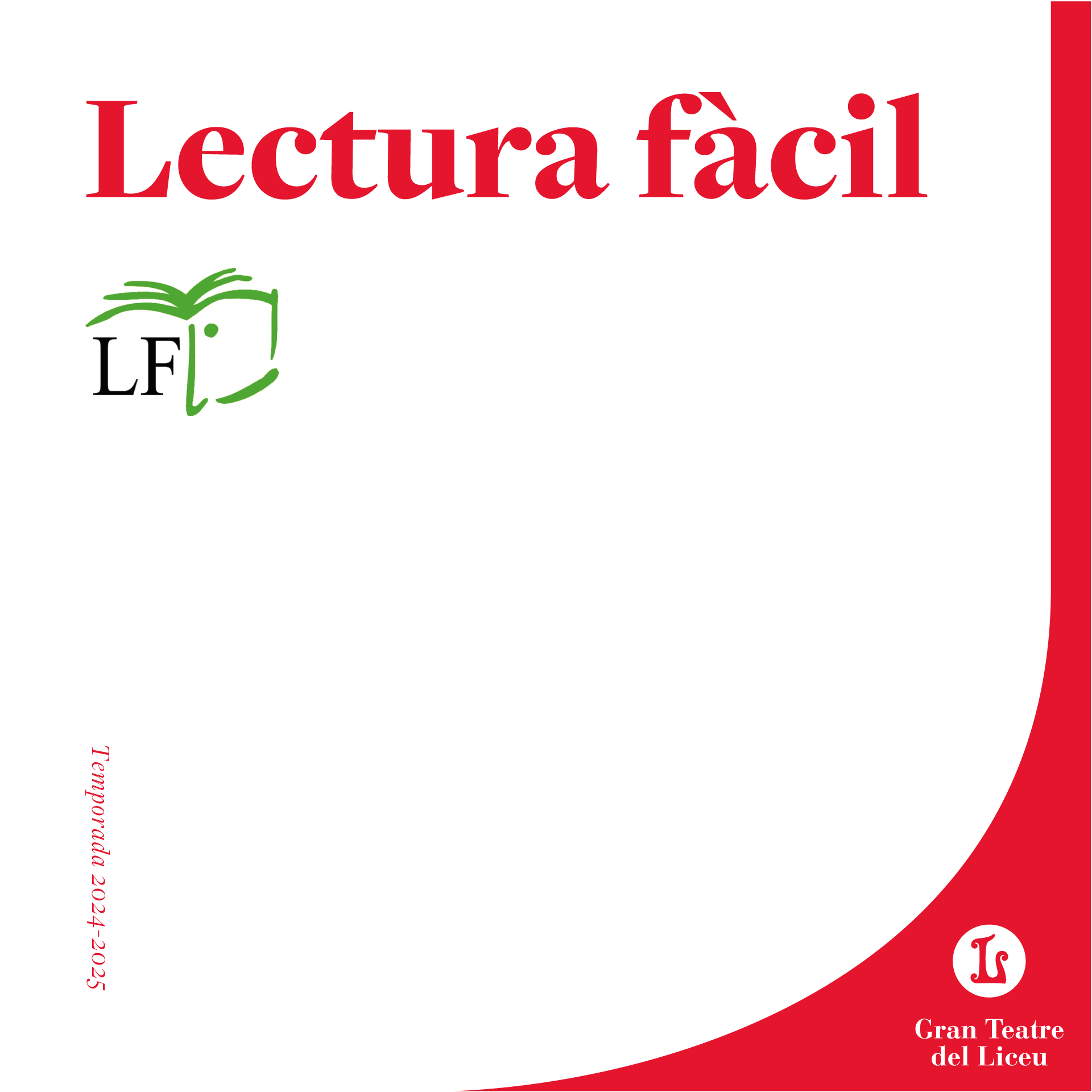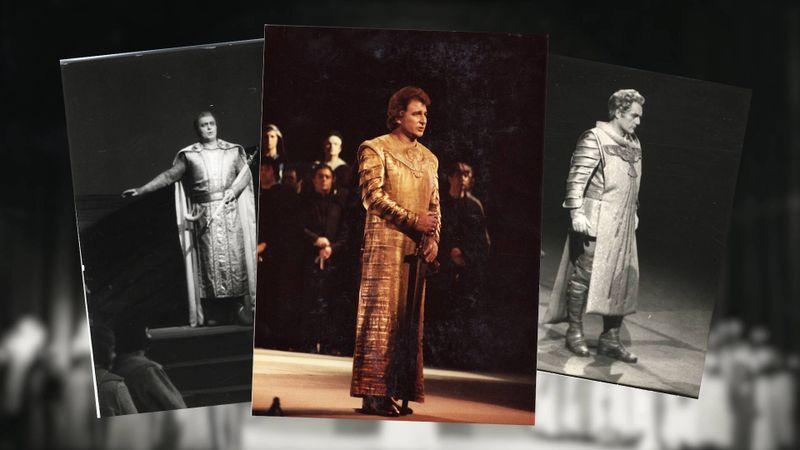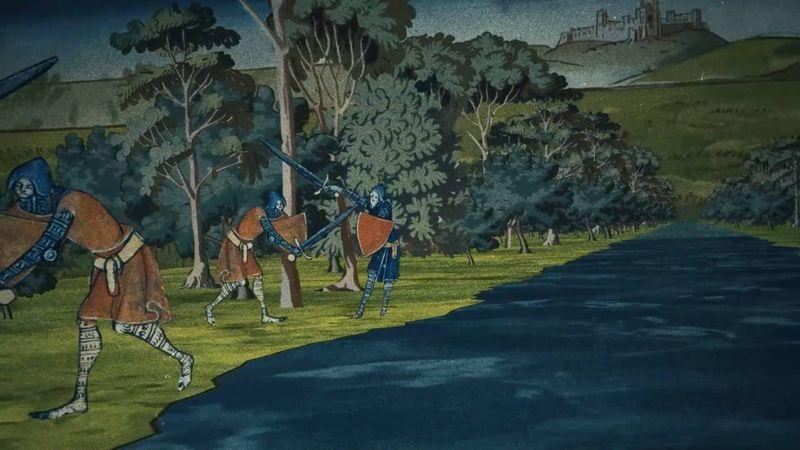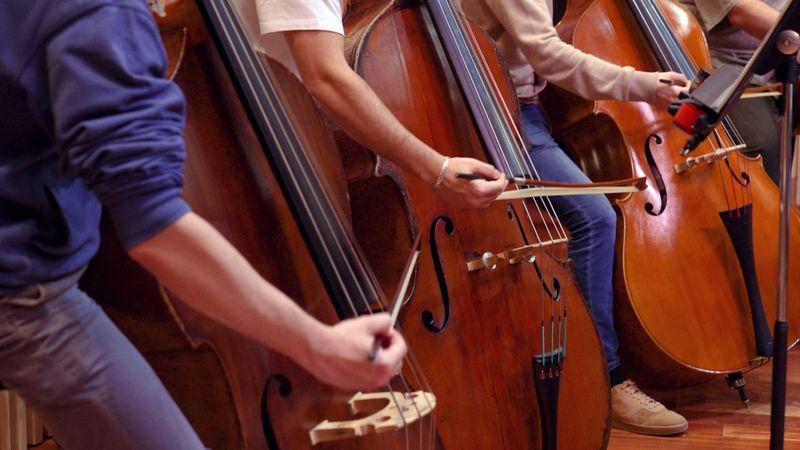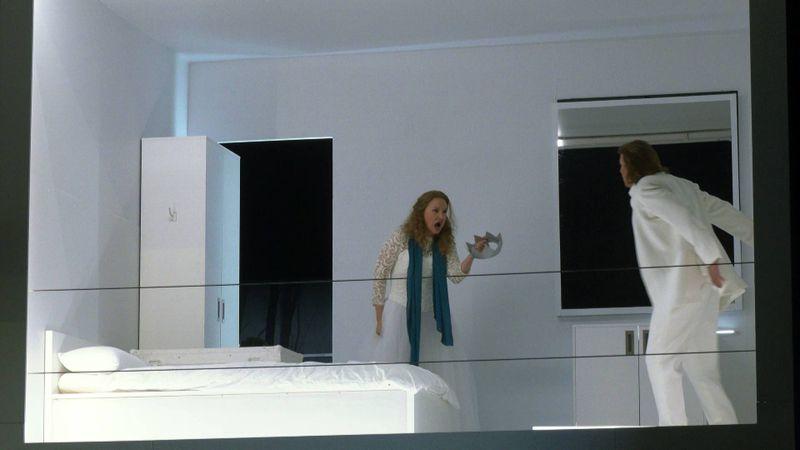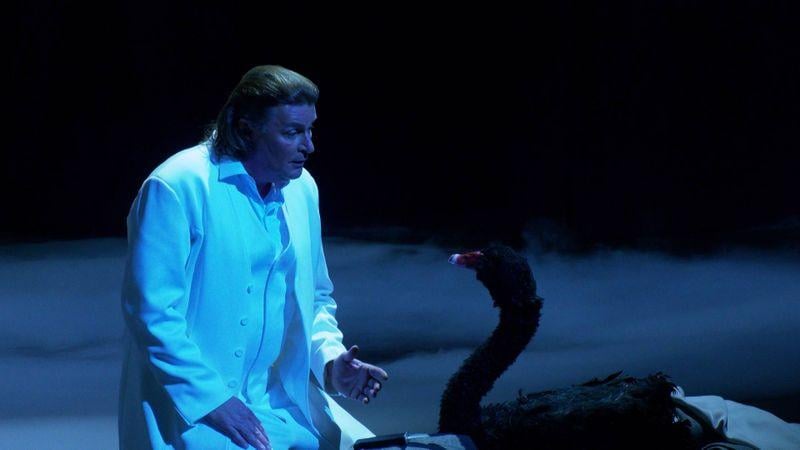New production from the Liceu signed by Katharina Wagner
"Be pure, be noble; rise."
Buda
Elsa, accused of killing her brother, the heir to the Duchy of Brabant, in her tribulations seeks justice and to be defended by a man she has only seen in her dreams. In pursuit of this ideal, against all odds, he appears, guided by a swan, and accepts the challenge, but with the condition that she never asks him about his origin or his name.
Chronologically, Lohengrin lies at the center of Richard Wagner's career, both thematically and artistically. Wagner was 37 years old when he concluded Lohengrin: a romantic opera with highly magnetic music. The libretto, written by Wagner himself, is a personal and romantic reimagining of a medieval legend. Based on a series of sources: the anonymous 13th-century German epic Lohengrin and Wolfram von Eschenbach’s Parzival (1160–1220), Wagner addresses themes ranging from the spiritual (the role of the divine in human lives) to the political (the construction of the concept of nation during times of transition and migration), and the deeply personal (the centrality of the mystery of erotic attraction).
For this broad convergence of subjects, the composer himself creates a colossal score, impressive in its richness of themes and textures, theatrically very effective, which has been considered the best gateway to his work and also the opera that represents the first steps in his concept of musical drama: leitmotifs, a more sumptuous orchestra...
Supreme achievement of Romanticism: it includes the most ethereal music of Wagner himself (the Prelude, Elsa's dream, and Lohengrin's final narration). In contrast to these passages, we find military-style music such as the fanfares in Acts I and III, the wedding celebration music, and the invocation of the pagan gods by Ortrud. The chorus expresses emotions ranging from hope to the deepest human fears. Lohengrin is, therefore, an allegory of the birth of a communal consciousness of awakening and hope.
Wagner's monumental masterpiece triumphantly returns to the stage of the Gran Teatre del Liceu in a new production signed by Katharina Wagner (great-granddaughter of the composer and director of the Bayreuth Festival). It will have been a highly anticipated debut in Barcelona, especially considering that it was the first title to be canceled when the world went into the pandemic. With this symbolic opera — also the first of the German composer to be premiered in Barcelona in 1882 — Katharina Wagner reveals an atmospheric staging, with an engaging visual style, a sharp dramatic vision, and a surprising dramaturgical concept.
A winter landscape. Three worlds facing each other like suspended cubes in the air. And in the center, the hero with an unknown origin and a single destiny: to save the helpless, victims of injustice. Like Elsa, destined to be the wife of the knight from Montsalvat. The act of revealing his identity will cause the fall of the men of Brabant, despite the emergence of a new order.
With conductor Josep Pons on the podium to lead an excellent cast, including: Klaus Florian Vogt, one of the most acclaimed tenors in the world as a specialist in Wagnerian repertoire in the main role of the mysterious swan knight; Elisabeth Teige, a true queen of the Bayreuth Festival with roles such as Sieglinde, Elisabeth, or Senta, and here, the Duchess Elsa, falsely accused of murder; and Irene Theorin, who, after successful performances at the Liceu as Isolde, Turandot... now returns as the cunning Ortrud.
After successes with Der Ring des Nibelungen, Tristan und Isolde, and Parsifal, Josep Pons once again faces a Richard Wagner opera from the pit.
Romantic opera in three acts
Libretto by Richard Wagner.
- World premiere: 28/08/1850 at the Großherzogliches Hoftheater in Weimar.
- Premiere in Barcelona: 17/05/1882 at the Teatre Principal.
- Premiere at the Gran Teatre del Liceu: 06/03/1883.
- Last performance at the Liceu: 05/09/2012.
- Total performances at the Liceu: 242.
With exclusive sponsorship from:

Dates and tickets
| Turn A | |||||
| Turn B | |||||
| Turn C | |||||
| Turn G | |||||
| Turn D-H | |||||
| Turn T AD |
The Lohengrin performance on Sunday, March 30th is dedicated to the commemoration of the 150th anniversary of the birth of Isabel Llorach i Dolsa, patron, Wagner enthusiast, and prominent figure of Catalan culture in early 20th-century Barcelona.
- First act 60 min
- Pause 30 min
- Second act 80 min
- Pause 20 min
- Third act 60 min
Artistic profile
- Stage direction
- Katharina Wagner
- Scenography
- Marc Löhrer
- Costumes
- Thomas Kaiser
- Lighting
- Peter Younes
- Dramaturgy
- Daniel Weber
- Production
- Gran Teatre del Liceu
- Choir of the Gran Teatre del Liceu
- Director, Pablo Assante
- Symphonic Orchestra of the Gran Teatre del Liceu
- Assistant conductor
- P. Mauricio Sotelo-Romero
- Director
- Josep Pons
Cast
Cast changes
- Finnish soprano Miina-Liisa Värelä will perform the role of Ortrud in the March 24, 27 & 30 performance, replacing Iréne Theorin, who is unable to sing due to a vocal cord infection and under medical advice.
- The soprano Okka von der Damerau will take on the role of Ortrud in the March 19 and 21 performances, replacing Iréne Theorin, who will be unable to sing due to a vocal cord infection, as advised by her doctors.
- Finnish soprano Miina-Liisa Värelä will take on the role of Ortrud on the opening night of Richard Wagner's Lohengrin on March 17. This adjustment in the cast is due to artistic disagreements between Iréne Theorin and the production’s stage director, Katharina Wagner.
- Baritone Guillem Batllori will perform the role of Knight, replacing Ferran Albrich at the artist's request.
Get ready for 'Lohengrin'
Ciutat de Clàssica
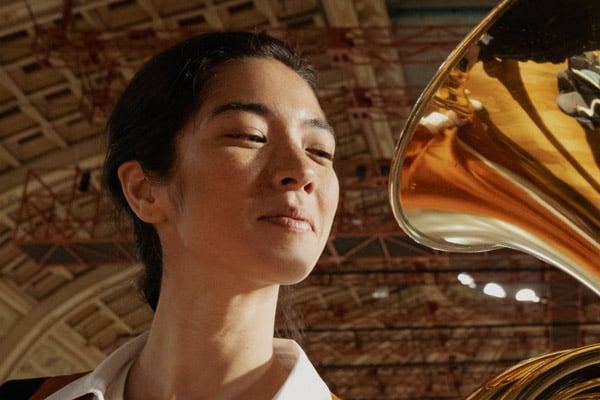
Ciutat de Clàssica is a festival born from the collaboration between the Gran Teatre del Liceu, the Palau de la Música Catalana, L’Auditori, and several iconic spaces in Barcelona.
The sixth edition of the Ciutat de Clàssica Festival features 18 concerts and operas by internationally renowned artists at the Gran Teatre del Liceu, the Palau de la Música Catalana, and L’Auditori. At the same time, 23 free concerts performed by local talent are held in unique and unexpected city venues, such as museums, libraries, civic centers, and even historic buildings like Casa Batlló or the Mies van der Rohe Pavilion.
Lohengrin by Richard Wagner is part of the Ciutat de Clàssica 2025 program.
More information

On Monday, March 17, at 7:00 PM, Catalunya Música will broadcast live the opera 'Lohengrin' by Richard Wagner from the Gran Teatre del Liceu, as part of the program "Live at the Opera," hosted by Xavier Montagut, Aleix Palau, and Judit Jordana.


